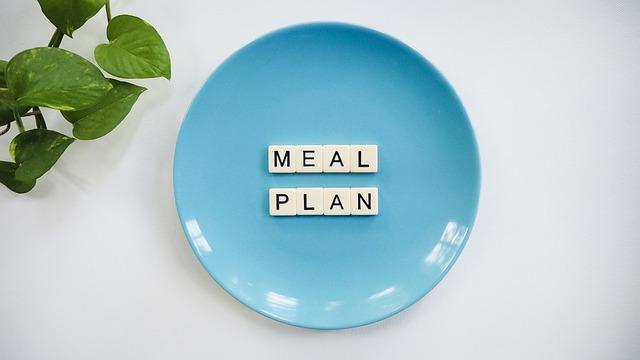Feeding your dog is one of the most fundamental aspects of pet ownership, yet it often comes with a myriad of questions and uncertainties. As devoted pet parents, we want nothing more than to ensure our furry companions lead healthy, happy lives. “” is here to demystify the process, offering you a comprehensive resource to navigate the world of canine nutrition with confidence. In this guide, we’ll explore everything from understanding dietary needs at different life stages to selecting the best food options and even addressing common feeding challenges. With warmth and expertise, we invite you to embark on this journey to enhance your dog’s well-being, one meal at a time.
Understanding Your Dogs Nutritional Needs
To truly nurture your furry friend, it’s crucial to delve into what makes up their diet. Dogs, like humans, require a balanced intake of nutrients to thrive. These include proteins, carbohydrates, fats, vitamins, and minerals. Each element plays a vital role in maintaining your dog’s health. Proteins are essential for growth and repair, while carbohydrates provide energy. Fats are crucial for a shiny coat and healthy skin, and vitamins and minerals support various bodily functions.
- Proteins: Vital for muscle development and tissue repair.
- Carbohydrates: A primary source of energy.
- Fats: Essential for healthy skin and coat.
- Vitamins & Minerals: Support immune function and overall well-being.
Understanding the unique nutritional needs of your dog, based on their age, breed, size, and activity level, can guide you in choosing the right diet. Puppies, for instance, require more protein and fat than adult dogs, while senior dogs may need fewer calories but more fiber. Always consult with your veterinarian to tailor a diet plan that suits your dog’s specific needs, ensuring they lead a long, happy, and healthy life.

Choosing the Right Type of Dog Food
When it comes to nourishing your furry friend, selecting the right dog food is paramount to their health and happiness. Understanding the different types of dog food available can help you make an informed decision. Here are a few options to consider:
- Kibble: This dry food is popular for its convenience and long shelf life. It’s also great for dental health as it can help reduce plaque buildup.
- Canned/Wet Food: With higher moisture content, wet food can be more palatable and easier to digest, especially for older dogs or those with dental issues.
- Raw Food: Often referred to as the BARF (Biologically Appropriate Raw Food) diet, this includes raw meat, bones, and organs, aiming to mimic a dog’s natural diet in the wild.
- Homemade Meals: For those who prefer complete control over their dog’s diet, homemade meals can be tailored to meet specific nutritional needs but require careful planning and veterinary guidance.
Consider your dog’s age, breed, activity level, and any specific health concerns when selecting a food type. Always consult with your veterinarian to ensure you’re meeting your dog’s nutritional requirements. By choosing the right food, you’re investing in your dog’s overall well-being and longevity.

Creating a Balanced Meal Plan for Your Canine
Crafting a nutritious meal plan for your furry friend involves more than just filling their bowl. It’s about ensuring they receive a balanced diet that supports their overall health and well-being. A well-rounded canine meal should include a variety of essential nutrients. Here’s a quick guide to what your dog’s diet should consist of:
- Proteins: Essential for muscle development and repair, proteins can be sourced from lean meats like chicken, beef, or fish.
- Carbohydrates: Provide energy for your pup. Consider whole grains such as brown rice or oats.
- Fats: Crucial for healthy skin and a shiny coat, healthy fats can be found in sources like fish oil and flaxseed.
- Vitamins and Minerals: Ensure the inclusion of fruits and vegetables, such as carrots and blueberries, for a boost of vitamins and antioxidants.
- Water: Always keep fresh water available to maintain hydration.
Each dog is unique, so it’s important to tailor their diet to their specific needs, considering factors like age, breed, activity level, and any health issues. Consult with your veterinarian to create a meal plan that’s perfect for your canine companion, ensuring their meals are as delightful as they are nutritious.

Tips for Encouraging Healthy Eating Habits
Establishing a nutritious diet for your furry friend doesn’t have to be a challenge. Start by offering a variety of high-quality foods that provide a balanced mix of proteins, fats, and carbohydrates. Always check the ingredients list to ensure there are no harmful additives. Consider introducing fresh fruits and vegetables as healthy snacks, but make sure they are safe for canine consumption.
- Incorporate Omega-3 fatty acids for a shiny coat and healthy skin.
- Use portion control to prevent overfeeding and maintain a healthy weight.
- Hydration is key – ensure your dog has constant access to fresh, clean water.
Consistency is vital, so try to establish a regular feeding schedule. This not only aids digestion but also helps in building a routine, making your dog feel secure and satisfied. Remember, every dog is unique, so observe how your pet responds to different foods and adjust their diet accordingly. By being attentive and proactive, you can foster a lifetime of healthy eating habits for your beloved companion.

